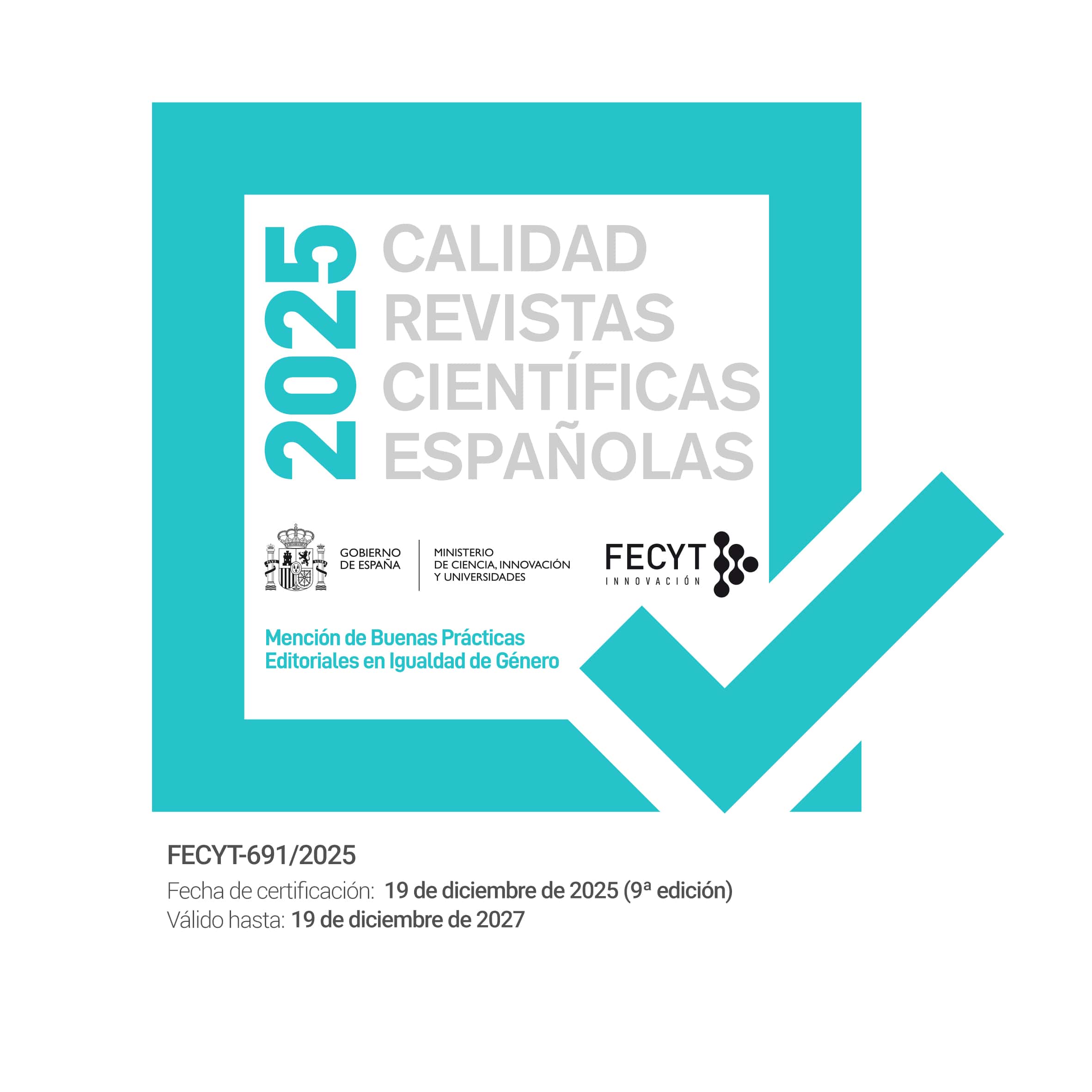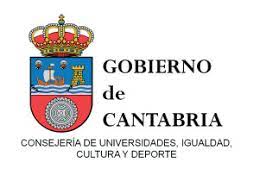Two notes on Schopenhauer in Fortunata y Jacinta
DOI:
https://doi.org/10.55422/bbmp.475Keywords:
Schopenhauer, Bourdeau, Feijoo, Fortunata, Moreno-Isla, Sexuality, Procreation, Genius of The Species, Tree of LifeAbstract
The article deals with the partial presence of «Supplements to the Fourth Book» of The World as Will and Representation by Arthur Schopenhauer in two chapters of Fortunata y Jacinta: 3, IV, «Un curso de filosofía práctica» and 4, II «Insomnio». The analysis is based on a letter to Clarín, datable septemberoctober 1886, in which Galdós comments on his pleasant discovery of the philosopher from Danzig, whom he may have read in the successful anthology by Jean Bourdeau, Pensées, maximes et fragments (1880). This reading was to impregnate the above mentioned chapters of the third and fourth part of de novel, enriching the debate about the conflict nature/ civilization, a central subject in the novelist work
Downloads
Publication Facts
Reviewer profiles N/A
Author statements
Indexed in
- Academic society
- Sociedad Menéndez Pelayo
- Publisher
- Sociedad Menéndez Pelayo
Global Statistics ℹ️
|
153
Views
|
173
Downloads
|
|
326
Total
|
|
References
ALDARACA, Bridget A. (1992) El ángel del hogar: Galdós y la ideología de la domesticidad en España. Madrid. Visor.
ALONSO, Cecilio. (1996) «Notas sobre el pesimismo activo en la literatura española hacia 1900. (Un fin de siglo entre la voluntad y el dolor de vivir)». Anales de Literatura Española. 12. 27-54. DOI: https://doi.org/10.14198/ALEUA.1996.12.02
ARENCIBIA SANTANA, Yolanda. (2020) Galdós. Una biografía. Barcelona. Tusquets Editores.
BLY, Peter A. (1984) «Ripples on the Pond: Interdependent Approaches to the Galdós Chapter». Peter B. Goldman (Ed.) Conflicting realities: four readings of a chapter by Pérez Galdós (Fortunata y Jacinta, Part III, Chapter IV) London. Tamesis Books Limited. 7394.
B ERKOWITZ, H. Chonon. (1951) La biblioteca de Benito Pérez Galdós. Las Palmas de Gran Canaria. Ediciones El Museo Canario.
BOURDEAU, Jean. (1884) «Le bonheur dans le pessimisme. Schopenhauer d’après sa correspondance». Revue des Deux Mondes. 64. 4. (15 aôut) 916-934 https://www.revuedesdeuxmondes.fr /article-revue/aout-1884-6/
BOURDEAU, Jean. (1900) «Vie et opinions de Schopenhauer». Schopenhauer, Arthur. Pensées et fragments. 16ème édition revue et corrigée. Paris. Ancienne Librairie Germer Baillière et Cie. Félix Alcan. 5-29 https://gallica.bnf.fr/ark: /12148/bpt6k75241r.texteImage
BRUNETIÈRE, Ferdinand. (1886) «Revue littéraire. La philosophie de Schopenhauer». Revue Des Deux Mondes. 77. 3. (1 octobre) 694-706 https://www.revuedesdeuxmondes.fr/articlerevue/la-philosophie-de-schopenhauer/
COLIN, Pierre. (1979) Schopenhauer en France. Un mythe naturaliste. Lyon. Presses Universitaires de Lyon. OpenEdition books. Date de mise en ligne 5 novembre 2019. DOI: https://doi.org/10.4000/books.pul.474
DE LA NUEZ, Sebastián. (1990) Biblioteca y archivo de la Casa Museo Pérez Galdós. M.G. Martínez (col.) Las Palmas de Gran Canaria. Ediciones del Cabildo Insular de Gran Canaria.
DE LA VEGA, Garcilaso. (1995) Obra poética y textos en prosa. Bienvenido Morros (Ed.) Barcelona. Crítica.
DEL PEROJO, José. (1875a) «Arturo Schopenhauer», Revista Europea. II. 64. (16 de mayo) 401-408.
DEL PEROJO, José. (1875b) Ensayos sobre el movimiento intelectual en Alemania, Madrid, Imprenta de Medina y Navarro, 75106.
DE QUEVEDO Y VILLEGAS, Francisco. (1998) Un Heráclito cristiano, Canta sola a Lisi y Otros poemas. L. Schwartz e I. Arellano (Eds.) Barcelona. Crítica.
DE ROJAS, Fernando. (2000) La Celestina. F. J. Lobera, G. Serés, P. Díaz-Mas, C. Mota, I. Ruiz Arzálluz, F. Rico (Eds.) Barcelona, Crítica.
FRANK, Claudine. (Summer 1991) «Tragic Relief: An intertextual Reading of Galdós’s Fortunata y Jacinta and Zola’s La Joie de vivre». Comparative Literature. 43. 3. 209-229 https://www.jstor.org/stable/1770658?seq=1#metadata_info_tab _contents DOI: https://doi.org/10.2307/1770658
GILMAN, Stephen. (1985) Galdós y el arte de la novela europea, 1867-1887. Madrid. Taurus.
GINÉ Y PARTAGÁS, Juan. (1876) Tratado teórico-práctico de frenopatología o estudio de las enfermedades mentales. Madrid. Moya y Plaza.
GOLDMAN, Peter (Ed.) (1984) Conflicting realities: four readings of a chapter by Pérez Galdós (Fortunata y Jacinta, Part III, Chapter IV) London. Tamesis Books Limited.
GONZÁLEZ HERRÁN, José Manuel. (2018) «Evaristo Feijoo, de Fortunata y Jacinta: entre Emilia Pardo Bazán (1887) y Mario Camus (1980)». La hora de Galdós. Y. Arencibia, G. Gullón y V. Galván (Eds.) Las Palmas de Gran Canaria. Cabildo de Gran Canaria. 854-867 https://mdc.ulpgc.es/cdm/ref/collection/ galdosianos/id/1250
KRONIK, John W. (1984) «Galdosian Reflections: Feijoo and the fabrication of Fortunata». Peter B. Goldman (Ed.) Conflicting realities: four readings of a chapter by Pérez Galdós (Fortunata y Jacinta, Part III, Chapter IV) London. Tamesis Books Limited. 39-72.
LÓPEZ-BARALT, Mercedes (1987) «Lo que una sueña tiene su aquel: la exploración del inconsciente en Fortunata y Jacinta». Nueva Revista de Filología Hispánica. 35. 1. 151-170. DOI: https://doi.org/10.24201/nrfh.v35i1.626
MORENO CLAROS, Luis Fernando. (1994) «Schopenhauer en España», Daimon: Revista Internacional de Filosofía. 8. 203-234 https://revistas.um.es/daimon/article/view/13321
ORTEGA, Soledad (Ed.) (1964) Cartas a Galdós. Madrid. Revista de Occidente.
ORTIZ ARMENGOL, Pedro. (1996) Vida de Galdós. Barcelona. Crítica. P ÉREZ GALDÓS, Benito. (1876) Doña Perfecta. Madrid. Imprenta de J. Noguera http://www.cervantesvirtual.com/obravisor/dona-perfecta-novela-original--0/html/
PÉREZ GALDÓS, Benito. (1890) Realidad. Madrid. Imprenta de La Guirnalda http://www.cervantesvirtual.com/obravisor/realidad-novela-en-cinco-jornadas--0/html/
PÉREZ GALDÓS, Benito. (1912) Cánovas. Madrid. Perlado, Páez y Compañía http://www.cervantesvirtual.com/obravisor/canovas--0/html/
PÉREZ GALDÓS, Benito. (1973) Las cartas desconocidas de Galdós en La Prensa de Buenos Aires. W. H. Shoemaker (Ed.) Madrid. Ediciones de Cultura Hispánica.
PÉREZ GALDÓS, Benito. (2011a) Fortunata y Jacinta. 11ª ed. revisada y puesta al día. 2 vols. F. Caudet (Ed.) Madrid. Cátedra.
PÉREZ GALDÓS, Benito. (2011b) «Sesenta y seis cartas de Galdós a Clarín». A. E. Smith y J. Rubio Jiménez (Eds.) Anales Galdosianos. XL-XLI. 133-197.
PÉREZ GALDÓS, Benito. (2016) Correspondencia. A. E. Smith, M. A. Rodríguez Sánchez y L. Lomask (Eds.) Madrid. Cátedra.
RIBOT, Théodule. (1879) La filosofía de Schopenhauer. Mariano Ares (trad.) Salamanca. Imprenta de D. Sebastián Cerezo http://bibliotecadigital.jcyl.es/i18n/catalogo_imagenes/grupo.cm d?path=10162075
RIBOT, Théodule. (1903) La philosophie de Schopenhauer. 9ème éd. Paris. Félix Alcan. Éditeur. Ancienne Librairie Germmer Baillière et Cie https://gallica.bnf.fr/ark:/12148/bpt6k5599041d. texteImage
SHOEMAKER, W. H. (Ed.) (1964) «Una amistad literaria: la correspondencia epistolar entre Galdós y Narciso Oller». Boletín de la Real Academia de Buenas Letras de Barcelona. XXX. 247-306.
SCHOPENHAUER, Arthur. (1886) Le monde comme volonté et comme représentation. 2 vols. J. A Cantacuzène (trad.) Leipzig. F. A. Brockhaus https://catalog.hathitrust.org/Record/102577427
SCHOPENHAUER, Arthur. (1887) Parerga et paralipomena: aphorismes sur la sagesse dans la vie. 3ème éd. J. A. Cantacuzène (trad.) Paris. Germer Baillière et Cie, Félix Alcan Éditeur https://gallica.bnf.fr/ark:/12148/bpt6k201420k.image
SCHOPENHAUER, Arthur. (1900) Pensées et fragments. 16ème éd. revue et corrigée. J. Bourdeau (trad.) Paris. Ancienne Librairie Germer Baillière et Cie, Félix Alcan Éditeur https://gallica.bnf.fr/ark:/12148/bpt6k75241r.texteImage
SCHOPENHAUER, Arthur. (2009) El mundo como voluntad y representación. 3ª ed. Pilar López de Santa María (trad.) 2 vols. Barcelona. Editorial Trotta.
SERVÉN, Carmen. (2000) «Fortunata y su época: sobre los modelos de mujer en la España de la Restauración». Homenaje a Alfonso Armas Ayala, Vol. 2. Las Palmas. Cabildo Insular de Gran Canaria. 731-752 http://www.cervantesvirtual.com/obravisor/fortunata-y-su-poca---sobre-los-modelos-de-mujer-en-laespaa-de-la-restauracin-0/html/fff44ede-82b1-11df-acc7002185ce6064_7.html#I_0_
SOBEJANO, Gonzalo. (1986) «Muerte del solitario (Benito Pérez Galdós: Fortunata y Jacinta, 4ª, II, 6)». Germán Gullón (Ed.) Fortunata y Jacinta. Madrid. Taurus. 313-352.
SOTELO VÁZQUEZ, Adolfo (1996) «Schopenhauer, Zola y Clarín». Anales de Literatura Española. 12. 313-352 http:// www.cervantesvirtual.com/obra-visor/schopenhauer-zola-y-clarn0/html/ffbbe602-82b1-11df-acc7-002185ce6064_4.html
STERN, J. P. (1994) «Fortunata y Jacinta in the Context of European Realism». Joh. W. Kronik y Harriet S. Turner (Eds.) Textos y contextos de Galdós. Madrid. Editorial Castalia. 17-35.
TURNER, Harriet S. (1986) «Lazos y tiranías familiares: una reevaluación de Jacinta». Germán Gullón (Ed.) Fortunata y Jacinta. Madrid. Taurus. 277-298.
TURNER, Harriet S. (1989) «La verdad metafórica en Fortunata y Jacinta». La Torre. 3. 185-203.
TURNER, Harriet S. (1992) «La imagen metafórica como vida novelable en Galdós». Actas del X Congreso de la Asociación Internacional de Hispanistas: Barcelona 21-26 de agosto de 1989. A. Vilanova Andreu (coord.) vol. 2. 1515-1524.
WILLEM, Linda M. (1992-1993) «Moreno’s Unpublished Scene from de Fortunata y Jacinta Galley’s». Anales Galdosianos. XXVII-XXVIII. 179-184. http://www.cervantesvirtual.com/obravisor/anales-galdosianos--21/html/025555c4-82b2-11df-acc7002185ce6064_35.html#I_45_
ZOLA, Émile. (1884) La Joie de vivre. Paris. Charpentier https://gallica.bnf.fr/ark:/12148/bpt6k113129n.texteImage
VARELA OLEA, María Ángeles. (2013) «Hegel y Schopenhauer en Realidad: El perverso galdosiano sin voluntad». Theatralia: revista poética del teatro. 15. 119-132.
Downloads
Published
How to Cite
Issue
Section
License

This work is licensed under a Creative Commons Attribution-NonCommercial 4.0 International License.








